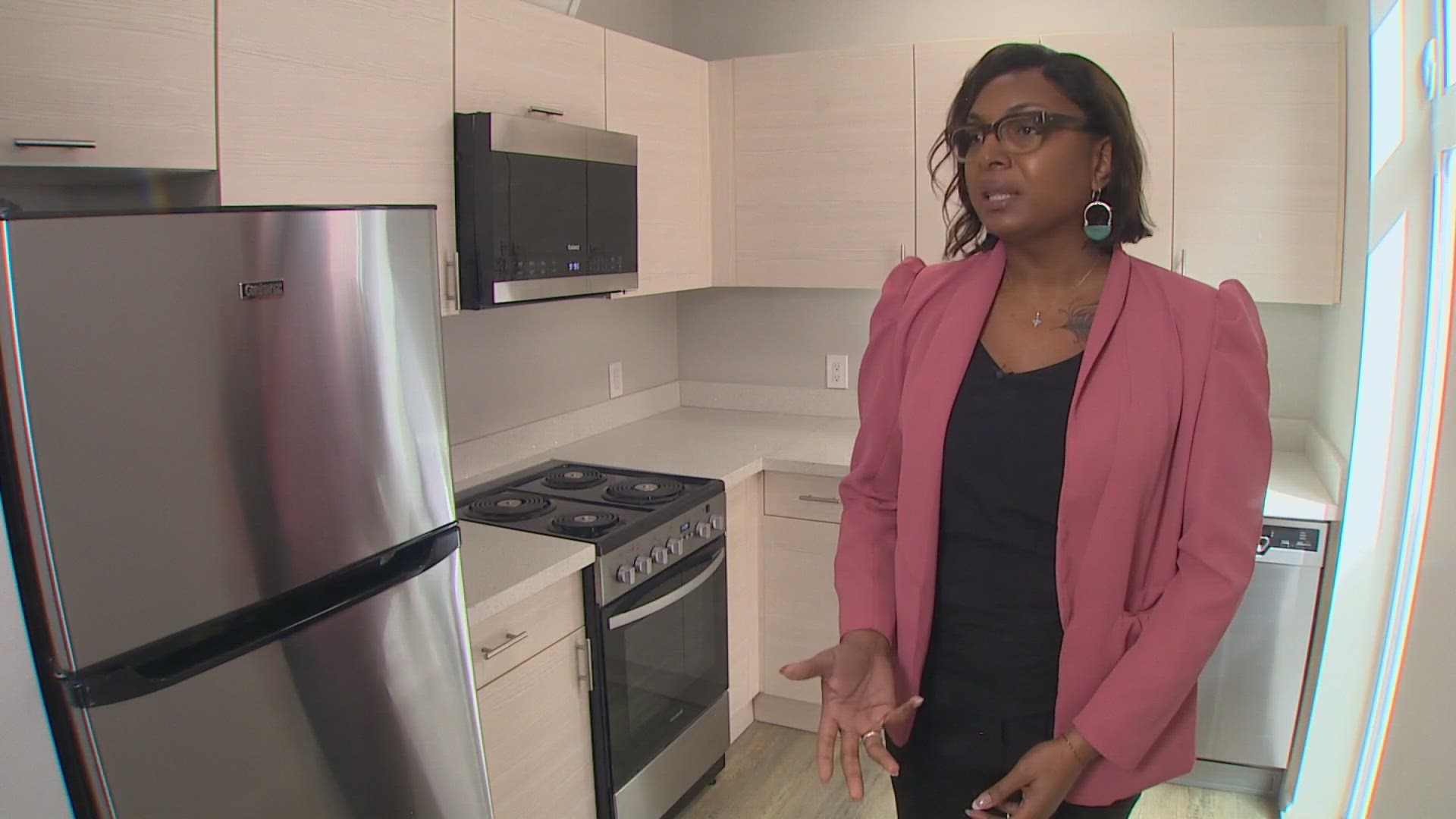SEATTLE — Seattle Mayor Bruce Harrell and King County Executive Dow Constantine announced Monday that fall move-in is expected for the 11th "Health through Housing" facility.
It is set to be operated by the Lavender Rights Project and Chief Seattle Club. According to a news release from King County, it will "serve queer, transgender, two-spirit, Black, Indigenous, people of color (QT2BIPOC) and provide a place to stabilize in a safe, single-room setting."
The county's Health through Housing initiative partners with cities to purchase former hotels, buildings and lots and convert them into apartments that offer either "emergency housing" or "permanent supportive housing." The Capitol Hill location will offer permanent supportive housing, paid for in partnership with the City of Seattle. The funding included $6 million in repurposed funds originally allocated to the jail, after the county and city announced intentions to reinvest $16 million toward "upstream community-based health and housing programs for communities that are disproportionately affected by the legal system and incarceration," according to a release.
The county says the location purchase cost approximately $11.6 million, and that it is too soon to say how much it will cost to operate on an annual basis.
The Chief Seattle Club already operates another Health through Housing property - the Salmonberry Lofts in Pioneer Square.
"We exist to provide many needs for the Native community - one of the most disenfranchised, marginalized communities that's left out of decision-making, resources on the table and the like; our disparities are off the chain," Chief Seattle Club Executive Director Derrick Belgarde said. "Being able to partner with Lavender Rights Project is very significant and heart-touching for us because their target population and their community they serve is very similar- forgotten, marginalized, very overlooked, so being able to partner and provide this is wonderful to be able to do this."
The Lavender Rights Project advocates and builds structures to "disrupt oppressive systems that target Black gender diverse and intersex communities of color and lead to disproportionate levels of poverty, housing disparities, and gender-based violence, especially among Black and Indigenous people," according to its mission statement. This is the first Health through Housing property where it will be directly overseeing the provision of representative services on site.
"We're stepping up along with a lot of nonprofits in the area that have decided to lean in because the current list of operators don't necessarily cover their community," Lavender Rights Project Executive Director Jaelynn Scott said. "We understand that as a Black trans organization, that we can serve our community better. We understand the culture, we understand their needs a little bit better, we work with them on a regular basis, and we're in relationship. So this is one of many projects that are happening both in King County and around the country where nonprofits are leaning in and adding housing to their portfolio."
Lavender Rights Project Director of Housing Services Ebo Barton said the location will provide access to services such as gender-affirming care, healthy food, needle exchange and HIV/STD-testing.
"It's a lottery in Seattle to find health care or mental health services that meet your identity," Barton said. "What else we need beyond this- is people's voices. We're often erased from conversations and advocacy and policy and it's about time people realize we have needs and wants that need to be addressed immediately. The queer and trans community has been in crisis for many years beyond what we see here in Seattle."
Mayor Bruce Harrell said selecting operators that are rooted in the communities the city and county wish to serve is critical to achieving an effective approach.
King County Executive Dow Constantine said the goal is to help people get stabilized and give them time to access the skillsets and techniques they need to get on their feet.
"This is an opportunity to go directly at those inequities in housing and homelessness and help people get out of the streets, get their lives back, and be able to thrive again," Constantine said.
Operators say the housing location in Seattle's Capitol Hill neighborhood is also significant.
"We believe Capitol Hill supports this project, we've heard from a lot of community members that there's a lot of support," Scott said. "This is a historically queer and trans neighborhood, for a long time Black people have existed in this space, and because of gentrification, Black folks and LGBTQ people have been pushed out, so we're coming home. This is not coming in and taking over- we're coming back home into the community."

